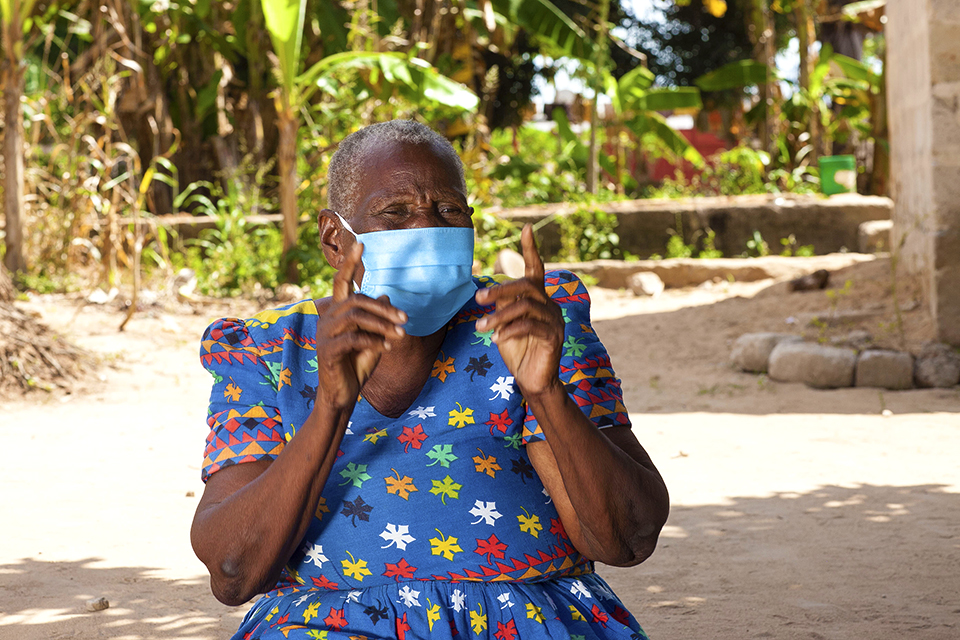From where I stand: “I want the views of older persons included in the planning of COVID-19 recovery programmes for my community”
Monica Chiwalo is 82 and mostly dependent on her children. She raised four children on her own after the death of her husband. The COVID-19 outbreak in Tanzania has devastated the livelihoods of families that rely on the informal sector and have no safety nets. Elderly women like Chiwalo are especially vulnerable to its health and economic impacts. Their voice and experience must be included in recovery efforts.Date:

This disease has killed many elderly people in many countries, particularly those in my age-group. I believe the impact is worse among elderly women in Africa, because we also tend to be the ones who look after our sick relatives, and at times, without enough protection.
The coronavirus has taken its toll on many families’ livelihoods in my community. Business has been slow, and some food items are not readily available. It breaks my heart to see people struggling to put food on the table. Older persons, like myself, wish they could help, but we do not have much strength to work and receive little or no pension at all. Another big challenge is that many families are not expecting to harvest much cassava and rice due to the floods experienced earlier in the year. It means people have to work harder to raise money to buy food they normally produce.
As Tanzania recovers from the coronavirus, we must make sure that health services remain accessible to the elderly because we require regular medical treatment [beyond COVID-19].
I want the views of older persons included in the planning of COVID-19 recovery programmes for my community, so that our needs are also addressed. For example, we have some elderly people in my community who live alone and are vulnerable to abuse. Our views should shape the expansion of care and support services for elderly people.”
Monica Chiwalo lives in Kibaha Mwenda Pole, near Dar es Salaam, Tanzania. In a recent interview with UN Women, she shared her experience and challenges as an elderly woman living through the COVID-19 pandemic. She asks that the voices of the elderly women be heard and counted in recovery plans that the country puts in place. UN Women is working with the Government of Tanzania and the civil society partners such as the Barefoot College in Zanzibar, the Tanzania Women Chamber of Commerce in Dar es Salaam, the African Women Leaders’ Network and the Pastoral Women’s Council (PWC) in Arusha – to make sure that diverse women’s voices shape COVID-19 response and rebuilding efforts. Our work in Tanzania is supported by KOICA, Sweden and Finland.